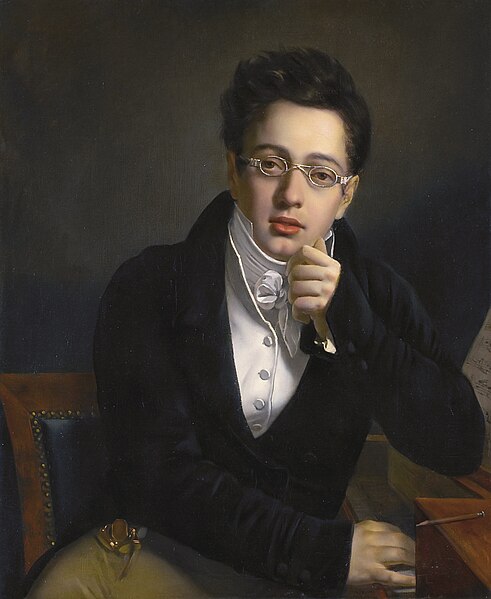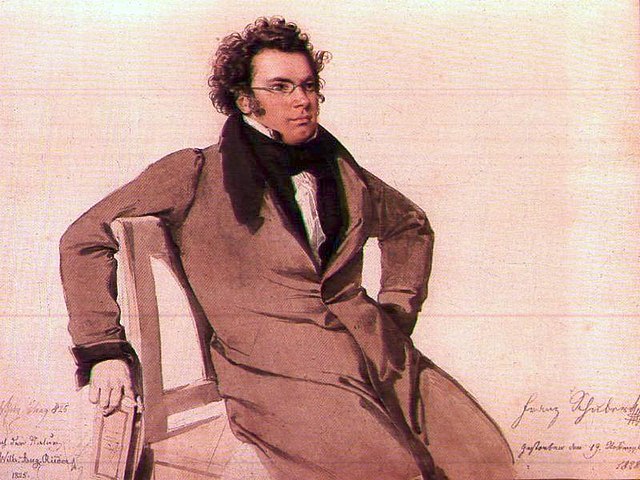Fierrabras, D 796, is a three-act German opera with spoken dialogue written by the composer Franz Schubert in 1823, to a libretto by Joseph Kupelwieser, the general manager of the Theater am Kärntnertor. Along with the earlier Alfonso und Estrella, composed in 1822, it marks Schubert's attempt to compose a grand Romantic opera in German, departing from the Singspiel tradition. It had to wait until 1897 for a (relatively) complete performance.
Franz Schubert
Fierrabras at the Salzburg Festival 2014
Franz Peter Schubert was an Austrian composer of the late Classical and early Romantic eras. Despite his short life, Schubert left behind a vast oeuvre, including more than 600 secular vocal works, seven complete symphonies, sacred music, operas, incidental music, and a large body of piano and chamber music. His major works include the art songs "Erlkönig", "Gretchen am Spinnrade", "Ave Maria"; the Trout Quintet, the unfinished Symphony No. 8 in B minor, the "Great" Symphony No. 9 in C major, the String Quartet No. 14 Death and the Maiden, a String Quintet, the two sets of Impromptus for solo piano, the three last piano sonatas, the Fantasia in F minor for piano four hands, the opera Fierrabras, the incidental music to the play Rosamunde, and the song cycles Die schöne Müllerin, Winterreise and Schwanengesang.
The house in which Schubert was born, today Nußdorfer Straße 54
Possible portrait of the young Franz Schubert c. 1814, attributed to Josef Abel
Caricature of Johann Michael Vogl and Franz Schubert by Franz von Schober (1825)
Watercolour of Franz Schubert by Wilhelm August Rieder (1825).






